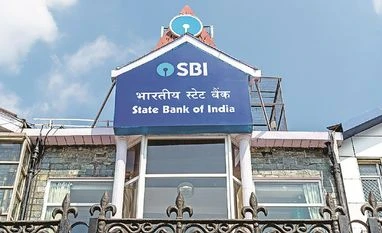SBI Q3FY24 result review: A higher-than-factored weakness in the October-to-December quarter (Q3) results of State Bank of India (SBI), for financial year 2023-24 (FY24), has prompted brokerages to cut earnings estimates for the ongoing financial year.
They, however, have maintained 'Buy' ratings on the stock, revising target price upwards in some cases, owing to the stock's recent underperformance relative to its peers.
"Despite a mixed Q3FY24, we believe delivery of growth on guided lines, sustenance of net interest margins (NIMs) near current levels, and controlled asset quality parameters aiding controlled credit costs should lead to strong profitability, and thereby re-rating, going ahead," said analysts at JM Financial.
Check SBI stock price LIVE Meanwhile, Union Finance Minister Nirmala Sitharaman has reportedly said the government is open to the idea of disinvestment of equity stake in blue-chip public sector undertakings (PSUs), including SBI.
Analysts believe the move may support SBI's stock as, generally, a PSU stock tends to move up post stake sale by the government.
"A PSU stock, generally, underperforms or corrects ahead of a potential stake sale by the government. Once the overhang is behind, it begins its upswing in case of favourable market sentiment. So, SBI's stock may find some support if the report turns out to be true," said Ambareesh Baliga, an independent market analyst.
The government currently holds 57.49 per cent stake in SBI.
On the bourses, shares of SBI fell close to 2 per cent intraday before settling 1.1 per cent lower at Rs 643. By comparison, the benchmark S&P BSE Sensex ended 0.49 per cent.
FY24 earnings cut
During the recently concluded quarter, State Bank of India reported a net profit of Rs 9,164 crore, down 35.5 per cent year-on-year (Y-o-Y)/36 per cent quarter-on-quarter (Q-o-Q), due to provision for pension liabilities.
India's largest state-owned lender said the one- time provisions (pension of Rs 5,400 crore, and dearness allowance of Rs 1,700 crore) impacted the profitability in the third quarter.
The total impact from the wage settlement, the lender said, is Rs 11,700 crore for H2FY24. SBI has already accounted for Rs 6,300 crore in Q3FY24 and the pending amount of Rs 5400 crore will be taken in Q4FY24.
Given this, analysts at Nuvama Institutional Equities have cut earnings by 21 per cent/9 per cent for FY24/25.
SBI announced a mixed Q3FY24 with a miss of 32 per cent on net profit. Strong loan growth (15 per cent Y-o-Y/5 per cent Q-o-Q) and a low loan-deposit ratio (LDR; 66 per cent) were positives, but a high wage provision, lower net interest income (NII; 0.7 per cent Q-o-Q /5 per cent Y-o-Y) and soft fees were the negatives, it said.
"SBI has underperformed other PSU banks and now trades at a 25 per cent discount to Punjab National Bank (PNB) in FY25. While SBI's results were weaker than other state banks, given its underperformance we retain 'BUY'," the brokerage added.
Over the past six months, shares of SBI have risen the least among PSU peers. ACE Equity data shows a rally of 12 per cent in the stock as against up to 115 per cent surge in peers. The Nifty PSU Bank index, meanwhile, has zoomed 49 per cent during the period, and the Nifty50 11.5 per cent.
Among other metrics, SBI's NIMs compressed 7bp Q-o-Q to 3.2 per cent, slippages increased to Rs 5,000 crore (0.7 per cent of advances), and credit costs at 20 bps of average loans.
"We believe NIM could continue to be under pressure due to competitive pressure on yields, normalisation in international NIMs and from any repo cuts, expected in H2FY25. Credit costs remain unsustainably low. Any normalisation would also lead to return on asset (RoA) compression. Overall, core RoA (ex-trading gains, recoveries), which is 80-90bp as of 9MFY24, could moderate by 15-20bp over FY24-26, limiting earnings per share (EPS) growth in this period," HSBC said.
The brokerage expects operating profit CAGR of 11 per cent (adjusted for one-off expenses in FY24) and EPS CAGR of 10 per cent over FY24-26. It has maintained a 'Hold' rating and a target of Rs 700.
Unlock 30+ premium stories daily hand-picked by our editors, across devices on browser and app.
Pick your 5 favourite companies, get a daily email with all news updates on them.
Full access to our intuitive epaper - clip, save, share articles from any device; newspaper archives from 2006.
Preferential invites to Business Standard events.
Curated newsletters on markets, personal finance, policy & politics, start-ups, technology, and more.
)